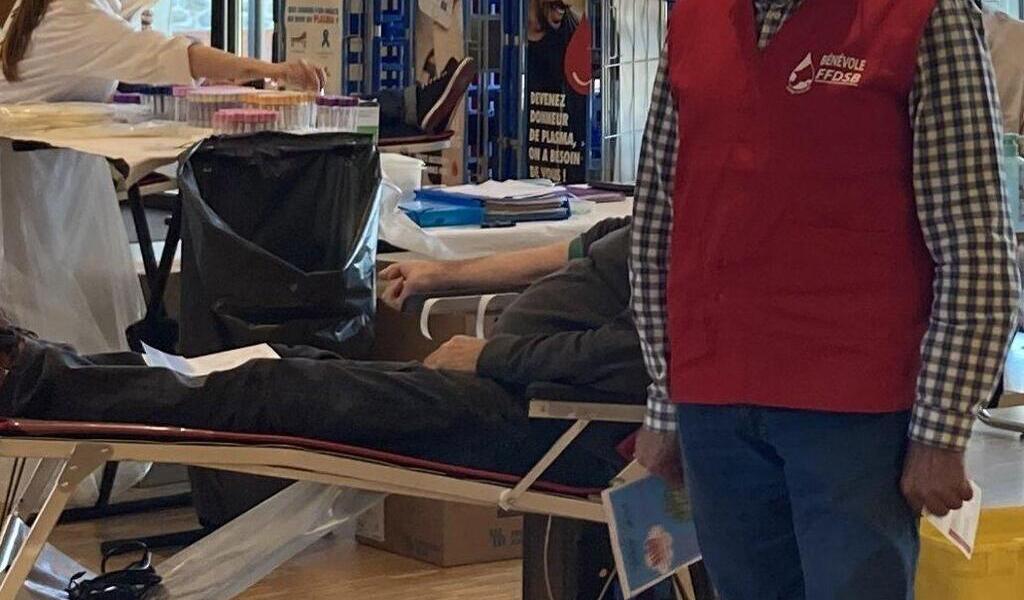Iowa Man Convicted in Roadside Shooting of Woman Who Rejected Advances
By Archyde News Service
Des Moines, IA – James Bernard Johnson, 43, has been convicted of frist-degree murder in the July 2024 shooting death of 42-year-old Nikki Loffredo in Des Moines, Iowa. The conviction, handed down April 9, 2025, stems from an incident where johnson shot Loffredo four times after she rebuffed his advances. johnson’s sentencing is scheduled for june 20, where he faces a maximum sentence of life imprisonment.
The Incident
According to court documents and statements from the Polk County prosecutor, the tragic event unfolded one morning in July 2024.Johnson,driving his car,noticed Loffredo walking on the street and whistled at her,attempting to engage her with an invitation to join him. Loffredo refused his advances, stating in public, “Who are you, sir? Get out of here.”
Loffredo’s rejection reportedly enraged Johnson. He shot her four times. One of the bullets struck a main artery, causing her to lose a meaningful amount of blood.She was transported to a local hospital but was pronounced dead shortly after arrival.
defendant’s Claim
Following his arrest,Johnson claimed he only intended to scare Loffredo,telling investigators that he felt disrespected by her refusal. The Polk County prosecutor revealed that Johnson argued he “only wanted to shoot and scare her and had no intention of killing her.” however, the jury rejected this defense, finding him guilty of first-degree murder.
Legal Context and Implications
First-degree murder convictions in Iowa carry a mandatory sentence of life imprisonment without the possibility of parole. The conviction highlights the seriousness with which the legal system views acts of violence, particularly those stemming from perceived disrespect or rejection. This case also brings to the forefront the issue of violence against women and the potential for seemingly minor interactions to escalate into deadly confrontations.
A Broader Look at street Harassment
The incident underscores the prevalence of street harassment and its potential to escalate into violence. While whistling or making unwanted comments may seem trivial to some, they can create a hostile environment and lead to dangerous situations. Studies have shown that street harassment disproportionately affects women and can lead to feelings of fear, anxiety, and reduced quality of life.
Organizations like Hollaback! work to end street harassment through education, advocacy, and the sharing of personal stories. Their efforts aim to create safer public spaces for everyone.
Counterargument: Was it Really Murder One?
Some may argue that Johnson’s claim of only wanting to scare Loffredo introduces reasonable doubt, suggesting a lesser charge like manslaughter might be more appropriate. This perspective hinges on the intent behind the shooting. Though, prosecutors successfully argued that Johnson’s actions demonstrated malice aforethought, a key element of first-degree murder. The prosecution likely presented evidence, such as the number of shots fired and the location of the wounds, to convince the jury that Johnson intended to kill Loffredo, regardless of his post-arrest statements.
Resources for Victims
If you or someone you know has experienced harassment or violence,resources are available to provide support and assistance. The National Domestic Violence Hotline offers confidential support and resources 24/7. Individuals can call 1-800-799-SAFE (7233) or visit their website at thehotline.org. Additionally, local law enforcement agencies and victim advocacy groups can provide valuable assistance and guidance.
| Association | Contact information | Services |
|---|---|---|
| National Domestic Violence Hotline | 1-800-799-SAFE (7233) thehotline.org |
24/7 confidential support, resources, safety planning |
| RAINN (Rape, Abuse & Incest National Network) | 1-800-656-HOPE rainn.org |
National Sexual Assault Hotline, online resources, support services |
| Local Law enforcement | 911 (Emergency) Non-emergency line (check local listings) |
Immediate assistance, investigation, protection orders |
FAQ: Frequently Asked Questions
- What was James Bernard Johnson convicted of?
- James Bernard Johnson was convicted of first-degree murder in the shooting death of Nikki Loffredo.
- What was the motive behind the shooting?
- The shooting occurred after Nikki Loffredo refused James Bernard Johnson’s advances. Johnson claimed he felt disrespected.
- What is the sentence for first-degree murder in Iowa?
- in Iowa, a conviction for first-degree murder carries a mandatory sentence of life imprisonment without the possibility of parole.
- When will James Bernard Johnson be sentenced?
- James Bernard Johnson is scheduled to be sentenced on June 20.
- Where can I find help if I have experienced harassment or violence?
- You can contact the National Domestic Violence Hotline at 1-800-799-SAFE (7233) or visit thehotline.org for confidential support and resources.
What are the key legal distinctions between a frist-degree murder conviction and a manslaughter charge in this context?
Interview: Examining the Iowa Roadside Shooting Case with Legal analyst, Sarah Nelson
By Archyde News Service
Introduction
Archyde News Service brings you an exclusive interview with Sarah Nelson, a Legal Analyst, to dissect the intricacies of the recent iowa case involving James Bernard Johnson’s conviction for the murder of Nikki Loffredo.
The Conviction and its Implications
Archyde: Sarah, thank you for joining us. This case has captured significant attention. Could you provide an overview of the conviction and its immediate legal implications?
Sarah Nelson: Certainly. James Johnson was convicted of first-degree murder, meaning the jury found he acted with premeditation. This carries a mandatory life sentence without parole in Iowa, a severe penalty reflecting the gravity of the crime.
Understanding the Motive
Archyde: The motive, as detailed in the reports, seems to stem from a rejection. How does the legal system interpret such a trigger in a first-degree murder conviction?
sarah Nelson: The prosecution had to establish Johnson’s intent. While the rejection was the catalyst, the act of shooting someone, especially multiple times, indicates an intent to kill. His claim of only wanting to scare her was rejected because the evidence, including the number of shots and their placement, likely contradicted this.
First Degree vs. Other Charges
Archyde: Some may question whether first-degree murder is the appropriate charge. Could you explain the difference between first-degree murder and, say, manslaughter in this context?
Sarah Nelson: The key distinction lies in the intent. First-degree murder requires premeditation, a prior intent to kill. Manslaughter, on the other hand, generally involves a killing without premeditation, frequently enough in the heat of passion or by a reckless act. the prosecution successfully argued premeditation,supported by the actions involved in the shooting.
The Role of Evidence
Archyde: What types of evidence were likely critical in securing this conviction?
Sarah Nelson: Ballistics reports,witness testimonies (if any),and any forensic evidence related to the crime scene were very vital. The number of shots fired and the specific wounds inflicted on the victim are also critical factors in determining intent.
Street Harassment and Broader Impacts
Archyde: The case also touches upon the issue of street harassment and its potential to escalate. Do you believe this case could serve as a discussion point?
Sarah Nelson: Absolutely. While the act of whistling or making unwelcome advancements appears harmless to some, this case emphasizes how dangerous these micro-aggressions can become. It raises awareness about the severity of consequences stemming from unwanted interactions and highlights the need for promoting respect and safety in public areas.
Looking Ahead
Archyde: What are your thoughts on the upcoming sentencing hearing?
Sarah Nelson: With the guilty verdict for first-degree murder, the sentencing is largely a formality.The judge must impose the mandatory life sentence. The defense might use the hearing to present factors to humanize the defendant, but it will not impact the sentence.
A Call for Discussion
Archyde: Thank you for your insights, Sarah. This case is undoubtedly deeply troubling. Where do you see the biggest challenge in preventing such tragedies in the future?
Sarah Nelson: I think the greatest challenge lies in shifting cultural norms. Fostering an environment where respect is paramount and where any form of harassment is unequivocally condemned is essential. The case has illustrated that there may be need to encourage people to seek mental health treatment before these behaviours escalate.
Final Thoughts
Archyde: Thanks once again for providing these helpful insights into the Iowa roadside shooting case. We encourage our readers to share their thoughts and comments on this very serious case and subject.








